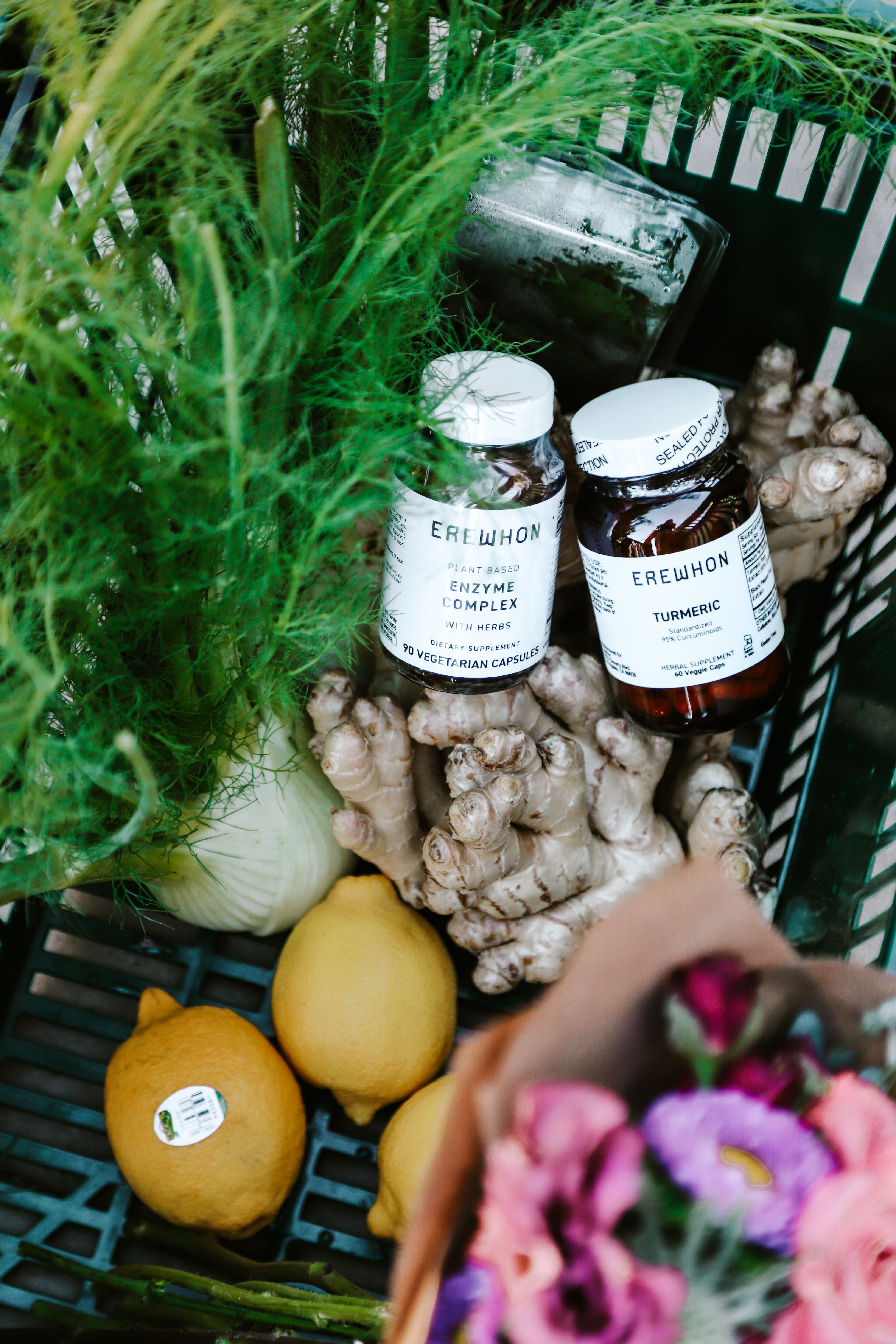Combating Bloat During The Holiday Season
After weeks of festivities and heavy meals, most of us are exhausted and ready for a cleanse by the time New Year’s rolls around. This year, we want to help you feel your best throughout the holiday season!
After weeks of festivities and heavy meals, most of us are exhausted and ready for a cleanse by the time New Year’s rolls around. This year, we want to help you feel your best throughout the holiday season!

With quality time spent with loved ones and the opportunity to recharge, there’s a lot to celebrate this holiday season. But if there’s any downside to this time of the year, it’s feeling bloated from a bit too much of the holiday spirit. After weeks of festivities and heavy meals, most of us are exhausted and ready for a cleanse by the time New Year’s rolls around.
This year, we want to help our community feel it’s best throughout the holiday season. If you follow these guidelines, your New Year’s Resolution won’t have to center around your diet!
What makes us feel bloated?
Feeling bloated occurs when the GI tract fills with air or gas, creating a buildup of pressure against digestive tissues. There are many causes of bloating, and every body is slightly different. That said, here are a few of the main culprits that lead to bloating.
1. Speed-eating. Speed-eating is linked to bloating in a variety of ways. First of all, scarfing down meals can cause us to over-consume.
show that it takes about twenty minutes for our bodies to process that we’re full! That explains the common “post-meal regret” at having eaten too much. By the time our bodies can tell our brains to stop consuming, we’ve already overburdened our digestive system.We may not realize it, but speed-eating prevents us from adequately chewing each bite. When our teeth aren’t doing the work, our intestines have to pick up the slack. Eating quickly also causes more air to pass through the esophagus, fill the GI tract, and make us feel bloated.
Slowing down the eating process not only has digestive benefits, it allows us to savor the foods that sustain us on a daily basis. What better time than the holidays for that?
2. Lack of Exercise. Moving our bodies is a vital part of the digestive process. Exercise elevates the heart rate and pumps blood throughout the body, allowing our gut to work more efficiently. Working out also expedites GI transit, preventing blockages and bloating.
On the other hand, a sedentary lifestyle slows down the digestive cycle and makes it more difficult for our bodies to process foods. So, the next time you get a run in, give yourself credit for helping out your digestive system!
3. Improper Digestion. Our digestive systems are amazing, but they can’t process every food perfectly. If the body cannot produce or activate necessary enzymes, the bacteria in our gut will feast on undigested food and create gas. While it ultimately gets the job done, this process leads to that terrible puffed-up feeling that we all want to avoid.
Naturopathic Remedies for Bloating
If there’s any silver lining to bloating, it’s that we can easily prevent it. Let’s take a look at how we can adjust our behaviors this holiday season.
1. Take three diaphragmatic breaths before eating. It may seem like the digestive and respiratory systems are separate, but they’re very much in sync.
have shown that diaphragmatic breathing, a practice that stimulates air in the lower abdomen, can reduce stress and many GI symptoms including bloating.Here’s how it works. Take a deep, four-second inhale--but instead of allowing your chest to inflate with air, force the breath into your belly. Then, let the air out on a six-second count. Repeat this process at least three times.
This process stimulates the diaphragm, the muscle at the base of your abdomen, and gently massages the stomach and intestines. It also reduces stress hormones, blood pressure, and muscle tension to make us feel more grounded.
2. Consume Inflammation-Modulating Teas. Among the many natural foods that decrease body inflammation and digestive discomfort, we recommend taking advantage of four herbs. These natural elixirs can be consumed in a variety of ways, but we particularly enjoy steeping them in teas.
3. Keep your gut health in mind as you shape your diet. The foods that we consume have a direct impact on how our GI tract responds. With that in mind, it’s a great idea to keep track of what does and doesn’t sit well with your system. If you want to incorporate gut-healthy food products into your diet, look no further:
***
Our nutritionists and naturopathic doctors are here to tell you that holiday festivities and bloating don’t have to go hand-in-hand! Taking these steps can keep our guts happy as we celebrate another year.